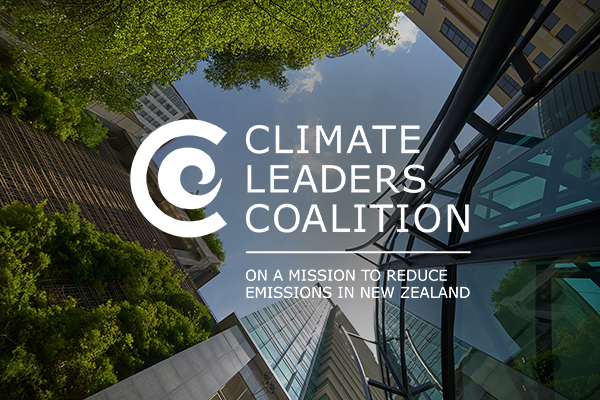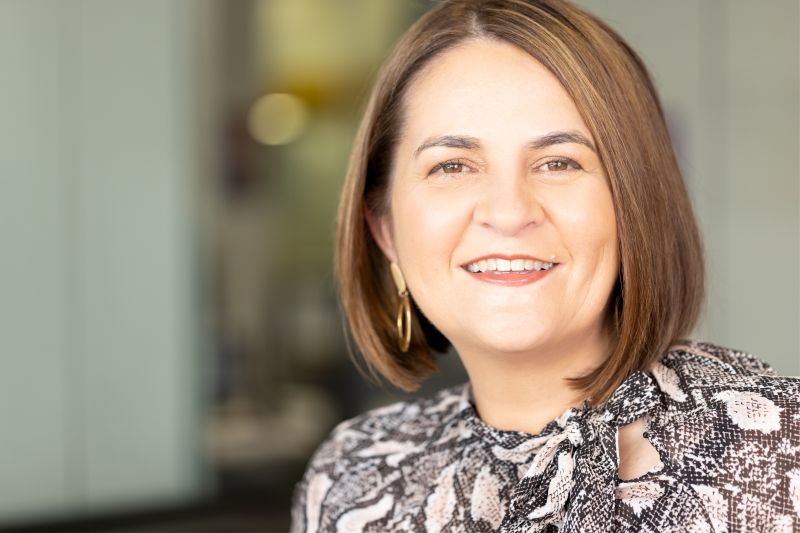News
Latest from the Coalition

SBC Hot Seat with Shannil Varma (CLC Manager)
This week, we've got Shannil Varma, Manager of the Climate Leaders Coalition (CLC), in the hot seat. Shannil's role sits within the Climate and Nature team at SBC (which is the secretariat organisation for CLC), and he oversees all the day-to-day operations and...

Climate Leaders Coalition re-commits to ambitious climate action with new convenor
The Climate Leaders Coalition welcomes Genesis CEO Malcolm Johns as the Coalition’s new convenor, succeeding Spark CEO Jolie Hodson MNZM. Since 2018, the CEO-led Coalition, made up of 87 signatories and accounting for around 30 percent of New Zealand’s GDP, has helped...

CLC Steering Group Convenor Jolie Hodson receives King’s Birthday Honours
We are so proud to see Spark New Zealand CEO and CLC Steering Group Convenor Jolie Hodson recognised earlier this week in the King’s Birthday Honours, alongside many other incredible New Zealanders. Jolie, your leadership of the Climate Leaders Coalition has helped...

CLC and SBC welcome inquiry into bipartisan adaptation framework
SBC and CLC welcome Friday’s announcement from Government around a bipartisan inquiry into an enduring climate adaptation framework for New Zealand, which is consistent with the recommendations we have made in our pre-election policy priorities paper. “Such a...
Search all news

NZ CEOs reckon with their roles in climate change
Last week we asked New Zealand CEOs whether greed is still good. In the second part of our series on the ethics of NZ businesses, we put them on the spot over whether short term profits trump long term environmental impacts.

Eastland Community Trust and Eastland Group leading the climate fight
Last month Eastland Group and Eastland Community Trust signed up to the Climate Leaders Coalition agreement to tackle climate change by reducing Greenhouse Gas emissions. Andrew Ashton delves deeper into how that will be achieved and how it will put Tairawhiti at the tip of the spear in the fight against climate change.

Ngāi Tahu hosts inaugural climate change symposium
We’re seeing more and more corporations, companies and councils developing environmental strategies to combat climate change, now iwi are jumping aboard. At Ngāi Tahu’s inaugural climate change symposium issues like coastal erosion, marae resilience, mahinga kai and wai were topics of discussion. Hania Douglas reports.

Ports of Auckland fights climate change with world’s first e-tug
Ports of Auckland has signed a contract with Dutch company Damen Shipyards to take delivery of the world’s first full-size, fully electric port tug in 2021 as part of its zero emissions policy.
The new tug, a Damen RSD-E Tug 2513 will have a 70 tonne pulling power, the same as the port’s strongest diesel tug, Hauraki, also built by Damen. It will cost about $18 million.

Five for five: Experts weigh in on why Kiwi businesses need to tackle waste management now
Businesses in our ‘clean green Aotearoa’ are becoming more responsible for the waste they emit as much as consumers are. From the new movement of the conscious individual came a need for our businesses to cater to that. Yet reducing waste and becoming more environmentally conscious is not an easy task for already solid businesses. Here, five industry experts give their insights and advice on how businesses can pivot towards a more sustainable outlook.

Waste Management to electrify entire vehicle fleet
Waste Management, which operates its rubbish collection and recycling services in 19 centres in New Zealand, plans to convert all its 850 trucks to electric.
Sam Donaldson, Waste Management’s senior project engineer, told the National Road Carriers’ Future of Freight forum in Auckland the company now has eight EV trucks on the road, with two more in the process of being converted. It is planning to have 15 trucks and 100 light vehicles converted to electric by the end of the year.

NZ Herald story on Zero Carbon Bill CLC submission

Healthcare’s massive carbon footprint
Most people would have no idea that the anaesthetic gases released by just one hospital annually in New Zealand has the carbon footprint of 500 return flights between Auckland and London.

NZ’s future is electric cars, not hydrogen-powered, Z Energy concludes
Electric vehicles rather than hydrogen-power cars have the most potential to green the transport industry, Z Energy has concluded in a report.
The process of creating hydrogen from sources such as natural gas or the electrolysis of water uses more energy than can be created from burning the hydrogen that is then produced.

LIC – keeping ahead of the herd
LIC is helping reduce dairy’s impact on the environment while increasing production, writes Bill Bennett.
For 23 years New Zealand added around 100,000 dairy cows a year to the national herd. The growth stopped about four years ago. In fact, there has been a small reduction in the number of cows since then.
Yet, production continues to rise because, thanks to the work of the Livestock Improvement Corporation (LIC), the cows are getting better. Corporation chief executive Wayne McNee says: “They need to be more profitable and they need to be more efficient. This has always been our job. Now we also need our cows to have a reduced environmental impact.”

Low-carbon menu: meat’s impact a real eye-opener, says top chef
Just when you’ve got your head around low-carb eating, up pops low-carbon eating.
But the similarities stop with the name: while low-carb eating favours lots of meat, cheese, cream and eggs – low-carbon eating is an entirely different beast.

Suncorp New Zealand Working Towards a Low-Emissions Economy
Suncorp New Zealand is a member of the Climate Leaders Coalition and has committed to reporting and reducing its greenhouse gas emissions to targets in line with New Zealand’s proposed Zero Carbon Bill.
